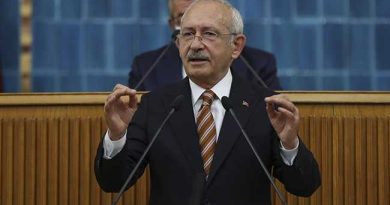Turkey’s Membership in EU “NOT” Possible for the Next Decade
Turkish membership in the European Union is off the bloc’s radar screen for the next decade, its decision not to include Turkey in the EU’s budget for 2014-2020 appears to show.
“Including Turkey in the 2014-2020 budget would have meant Turkey would be an EU member within this period. This is the last message French President Nicolas Sarkozy and German Chancellor Angela Merkel would like to give,” said Demir Murat Seyrek, a managing partner of the Brussels-based Global Communications and an expert on the European Union.
Candidate countries receive special funding during their first five years of EU membership. An allocation has been foreseen for Croatia, another candidate country that started membership talks the same year as Turkey and is expected to conclude its negotiations later this year.
Member states’ opposition to Turkey’s joining the bloc caused the European Commission, tasked with preparing the budget, to rebuff the Turkish government’s demands to have Turkey included in the EU’s 2014-2020 financial considerations.
The EU decided in 2004 to start membership talks with Turkey, but has avoided giving a specific target date, something it has offered to other candidates that later joined the 27-nation bloc. The EU ruled in 2004 that while the objective of negotiations is accession, such talks are an open-ended process, “the outcome of which cannot be guaranteed.”
This language was accepted in order to convince some member countries that were opposed to Turkey’s eventual membership but did not want to be held responsible for blocking the start of negotiations. Since that time, opposition to Turkey’s membership has grown stronger and the pace of reform in Ankara has slowed. The ruling Justice and Development Party, or AKP, has been pushing for a target date to finalize negotiations, saying it will have a motivating effect on slackening enthusiasm among a Turkish public less and less convinced that Turkey will ever enter the bloc.
Discussions on the EU’s long-term budget will officially begin only after the commission has tabled its own proposals in June 2011. Tough negotiations will then start for the next generation of spending programs, talks that will probably conclude at the end of 2012.
The budget must be agreed upon by the European Council and the European Parliament.
Discussions have already started among member states on the general outlines of the budget, however, with the United Kingdom joining forces with France and Germany to demand a real-term freeze in the EU budget until the end of the decade.
The three countries’ proposal that the union’s budget should rise by no more than the rate of inflation over the period 2014-2020 has received support from Poland, Sweden, Finland and Austria.
“If this proposal is adopted, this will close the way to add an additional issue to the budget, making it difficult to include Turkey during the course of the next eight years,” Seyrek said.
The negotiations on the EU budget come amid high stress on European national budgets due to the global financial crisis.
According to Seyrek, it would be futile for the AKP government to push to include Turkey in the next seven-year budget, as France and many countries will be strongly against it. He added that being absent in the budget does not mean it is impossible for Turkey to be a member within the next decade.
“Saying yes to Turkey’s membership is, after all, a political decision. The fact that it is absent in the budget will not prevent Turkey from becoming a member,” Seyrek said. “Candidate countries receive approximately 9 billion euros each year for the first five years. Turkey can live without that money.”
Others, though, see Turkey’s exclusion from the budget as a strong negative signal, dampening its hopes of EU accession.
April 20, 2011
SOURCE: Hürriyet Daily News





